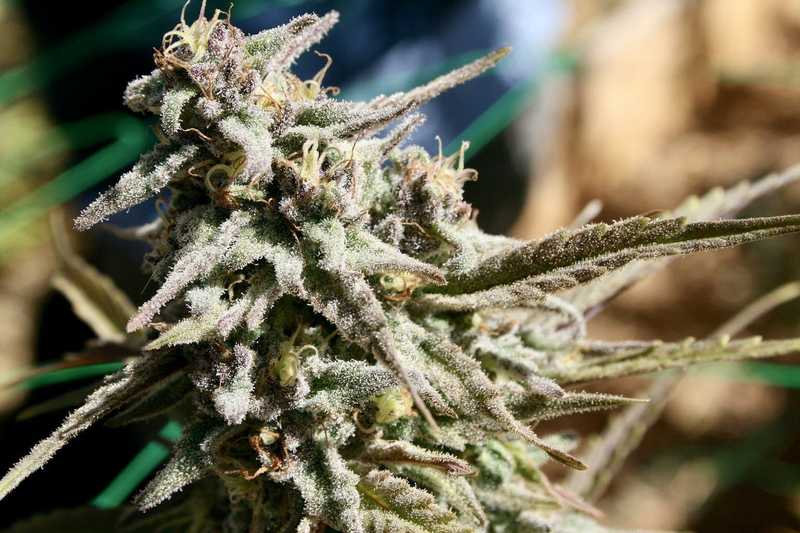Recent studies published within six months of each other make two diametrically opposed claims: One points to cannabis as the likely cause of seizures while the other states that cannabis may prevent them. But the connection between marijuana and seizures is a complex one. And while these studies are grabbing headlines for their contradictory statements, it’s important to remember that they arise from highly limited studies that don’t involve the kinds of “natural” cannabis products typically used for medicinal purposes.
FOLLOW US ON FACEBOOK & INSTAGRAM
Marijuana & Seizures: A Complicated Relationship
The question of whether—and how—cannabis can affect seizure activity in the brain has been raised numerous times. Anecdotal evidence from a number of medical cannabis consumers says that it can in both ways.
People with seizure disorders, and parents of children who have them, claim that cannabis, particularly cannabidiol (CBD), reduces the frequency and severity of seizures. Now, a study carried out in the spring of 2017 by researchers at the New York University Langone Medical Center appears to confirm CBD’s beneficial effects, to an extent.
On the other hand, some people say that their seizures resulted from smoking or eating cannabis, and some mainstream medical publications list seizures as a risk of cannabis use. In September 2017, another study conducted at Japan’s University of Tsukuba appeared to confirm that as well, with research that showed high doses of tetrahydrocannabinol (THC) and “spice,” a synthetic form of marijuana, could actually trigger seizures.
Who’s right? The answer is skewed by the limitations of these studies, both of which are based on artificial conditions and highly specific forms of cannabis that most medical consumers don’t typically encounter.
CBD Oil May Help Treatment-Resistant Seizures
The New York University study, and a few other studies, were prompted by comments from parents of children with severe forms of epilepsy such as Dravet Syndrome, which causes almost constant seizure activity and is often resistant to standard medications. These parents said that cannabis was able to reduce a child’s seizure activity when no other medications could.
RELATED: NEW STUDY PROVES EFFICACY OF CBD FOR CHILDREN’S EPILEPSY
To test these claims, researchers compared an FDA-approved cannabis-based medication called Epidiolex—a 99% pure CBD oil concentrate—to both a placebo and a standard epilepsy medication called Onfi. Compared to the placebo, 54% of patients taking Epidiolex had fewer seizures—and in 2%, seizures stopped altogether. Compared to Onfi though, the study found minimal differences in effectiveness. Based on these results, epilepsy specialists have cautiously allowed that Epidiolex could be used for “compassionate care” when other medications fail to work.
But that study looked only at a single, FDA-approved medication based on CBD—and the study was funded by its manufacturer, GW Pharmaceuticals. Still, this study does suggest that CBD plays a role in suppressing seizures and adds more evidence to the growing list of health benefits provided by this non-psychoactive cannabis compound.
Could THC & “Spice” Trigger Seizures?
In stark contrast, researchers in the Tsukuba study claim that cannabis can cause seizures—but only certain strains, in high doses and in mice. The study worked only with very high concentrations of natural THC, the psychoactive ingredient responsible for marijuana’s “high,” and found that in these controlled circumstances THC could in fact trigger seizures.
The same study examined the seizure-causing effects of one form of synthetic marijuana, known as “spice”. Spice was developed in the early 2000s as a way to get the marijuana high without the traces of THC that could show on a drug test. Since then, more than 150 different variants of spice have been lab-created, all of them far more potent than natural cannabis.
Like the natural cannabis compounds CBD and THC, spice in all its forms binds to the body’s natural endocannabinoid receptors. But although spice stimulates those receptors in ways similar to THC, it doesn’t behave in the body the same way that natural cannabis does, and that can cause very different effects.
What’s more, spice usually contains other substances that also break down and create byproducts that most likely cause actions of their own on the endocannabinoid receptors. The Japanese study focused on just one variant of spice, called JWH-018, administering it in very high doses, and found that this drug can also trigger seizures.
Spice can’t replicate the health benefits of natural cannabis and is sought after mostly by recreational users for its potency and ability to cheat a drug test. And although they sound a warning about the danger of seizures caused by cannabis, the Tsukuba research team acknowledge that those results come from administering concentrated forms of THC and JWH-018 at doses far higher than the typical consumer of recreational or medicinal cannabis would ever seek out. CBD was not included in this study at all.
The Cannabis-Seizure Connection Needs More Study
It’s clear there’s a connection between cannabis and seizures, but it isn’t entirely clear what that connection is.
For now, though, research indicates—and personal experiences validate—that CBD can calm seizure activity. And mainstream healthcare professionals point out that the risk of having a seizure from using cannabis is largely confined to a few specific groups: people who already have a seizure disorder, or who take anti-seizure medications or antipsychotic drugs that have their own risk of causing seizures.
More comprehensive research could unravel the complicated relationship between cannabis and seizures, but federal regulations on marijuana keep it on the DEA’s Schedule 1 of highly addictive and dangerous drugs. That makes it difficult to conduct the rigorous research that clears the air and helps cannabis consumers find the answers they’re looking for.
Photo credit: Brian Shamblen
If you’re new to cannabis and want to learn more, take a look at our Cannabis 101 post. HelloMD can help you get your medical marijuana recommendation; it's easy, private and 100% online.
